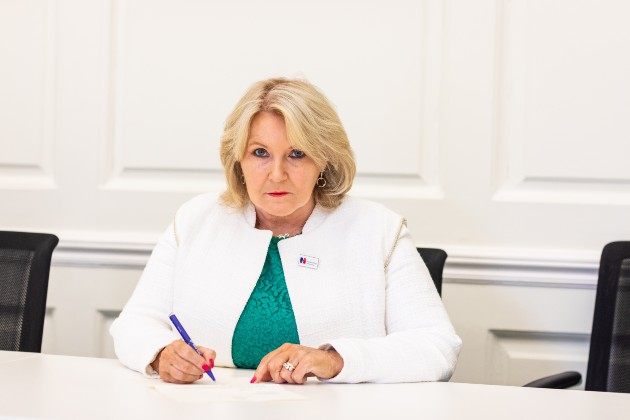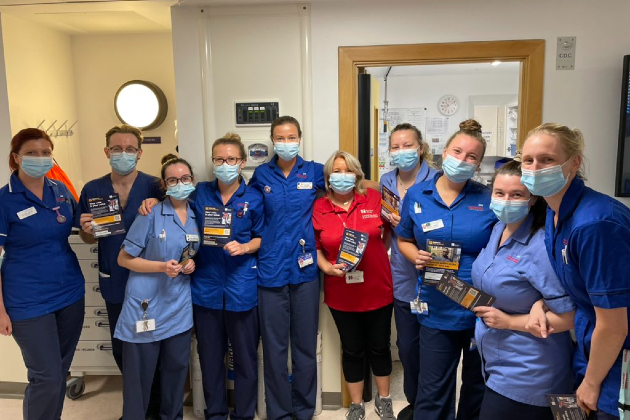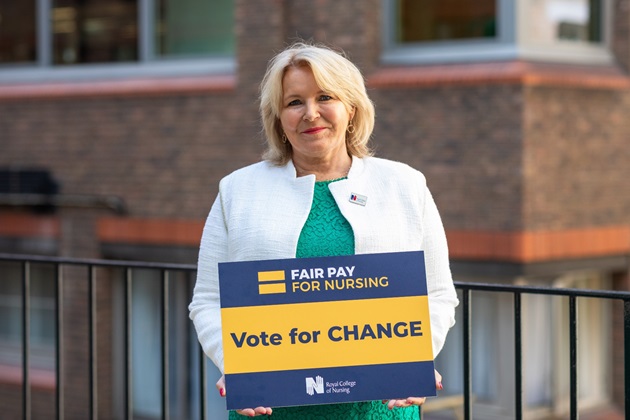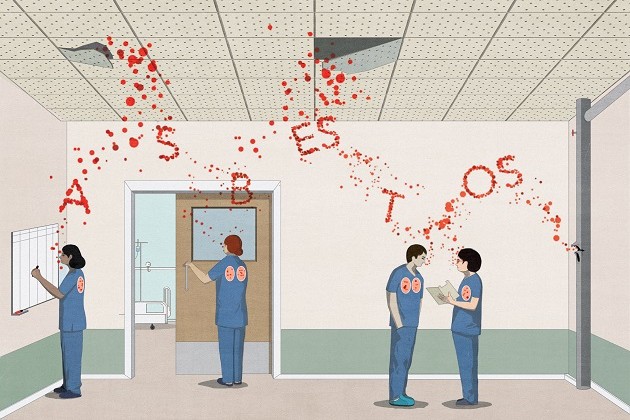As our biggest ever strike ballot approaches, RCN General Secretary & Chief Executive Pat Cullen has been visiting nursing staff around the UK.
The ballot has been organised in response to NHS pay. An NHS pay award, for members on Agenda for Change contracts, has been announced in England and Wales, and an NHS pay offer has been made in Scotland. In Northern Ireland, we’re still awaiting a pay announcement, but across the board, it’s unacceptable. We’ve been campaigning for a pay rise of 5% above inflation. All the deals and offers fall far short of that.
If enough members turn out to vote, and vote in favour, this will be the first time in the RCN’s history that nursing staff across the UK go on strike. The RCN’s only previous industrial action happened in Northern Ireland in 2019 and 2020, when Pat was on the picket line with members.
Pat stopped off at RCN HQ to tell us more about the historic strike ballot and the mood of the members she’s been meeting.
Pat, why is now the right time for nursing staff to go on strike?
PC: The answer is in the pay awards and pay offers. They are derisory. Members have told me they have found them an insult. If we are trying to keep the brilliant nursing staff we’ve got, if we are trying to address the thousands and thousands of vacancies that we’ve got, and if we are trying to seriously stop the health service from falling over the precipice, then we have to do something about pay.
How important is it that members turn out to vote?
PC: It’s vitally important. The voice of our members is the voice of the college. We will take the action that our members direct us to take, and they do that through their ballot.

I believe that they should be voting to take action, to have their voice heard, to stand up for what they’re entitled to, and to stand up for their patients, as they always do.
And there are certain thresholds that we need to meet in terms of voter turnout for any strike action to be lawful – is that right?
PC: Yes, at least 50% of our eligible members must return their ballot papers.
Why do you think strike action is the right choice?
PC: I say with a heavy heart, but members have been left with no alternative. We have governments who are refusing to listen to the voice of nursing staff, which is the voice of the patient. As long as they continue to do that, nursing staff will take whatever action is available to make sure that patients are cared for.
How would the RCN protect patient safety if nursing staff were to go on strike?
PC: For every nurse I spoke to this week, that’s a concern they raised with me: how will we keep our patients safe? There will be a lot of thought, carefulness and consideration given to that, so that we continue to keep patients safe but also keep our nursing staff safe.
Nursing staff will take whatever action is available to make sure that patients are cared for
We will place a local dispute and strike committee, a very senior member of our team in the Royal College of Nursing will be responsible for leading that committee. In those workplaces we will have clinical experts that will guide and direct us to determine the safe staffing levels.
We will be asking those employers to submit to us their duty rosters for at least six weeks prior to the day of action and also their previous Christmas day rosters that they would use in those designated areas. Then with the local team we will sit down and determine what is the minimum staffing that we’ll place in [safety critical] services.
Look at the experience of the college leading the first strike in Northern Ireland in 103 years. They did that very safely, they did that effectively, but they did it with a very steady hand. Throughout that action when nursing staff were standing on picket lines they didn’t abandon their patients.

On a personal level, how do you feel about the current situation?
PC: The gravity of what we’re facing into and the responsibility I feel on my shoulders, first and foremost as a nurse, never leaves me. What keeps me going is speaking to our members and seeing what they have to go through every day. But also the personal challenges – the humiliation of having to go to food banks, of having to look for second-hand uniforms for their children. If I ever needed confirmation that this is the right thing to do, speaking to every one of those members, I get that confirmation in abundance.
What a way to treat the people that provide care for our population
I would suggest to any government, walk in the shoes of nursing staff for just a day. Travel with them when they’re trying to calculate their bills at the end of the month and know there’s not a single penny in their bank account. What a way to treat the people that provide care for our population day in, day out. The very people that carried us all through the pandemic. It’s just not right: morally, ethically, or professionally.
And what about our members who don’t work in the NHS?
PC: They equally get a pretty raw deal, there is no doubt about that. Those members working within independent health services are equally important and a priority for me. They equally deserve a significant pay rise, they do deserve better terms and conditions, and better support from this government. In Northern Ireland, we found the strike action had a positive impact for members in other areas too.
So, we want members to get behind this campaign. What can they do to help the cause?
PC: Return your ballots. Talk to your colleagues, other nursing staff who have got questions or doubts if this is the right thing to do. Please talk to your patients and explain why we are doing what we’re doing. Also speak to political leaders in your region and ask them to search their souls. Tell them it’s never too late to pull back from this, but we will only pull back when there’s an offer on the table that is the right thing for nursing staff.
More information
- Find out more about the Fair Pay for Nursing campaign and how you can get involved.
- Read our industrial action handbook.








